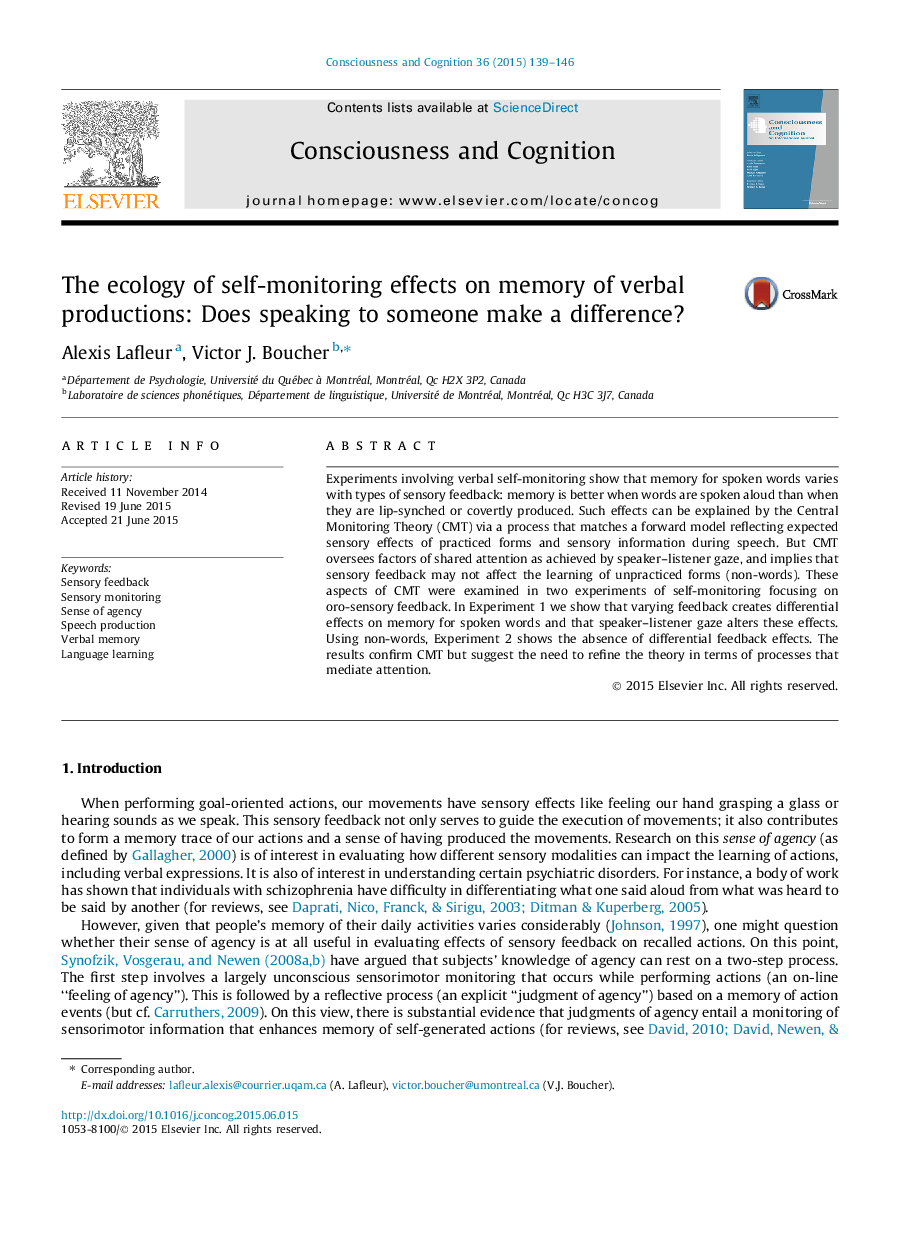| کد مقاله | کد نشریه | سال انتشار | مقاله انگلیسی | نسخه تمام متن |
|---|---|---|---|---|
| 7289052 | 1474175 | 2015 | 8 صفحه PDF | دانلود رایگان |
عنوان انگلیسی مقاله ISI
The ecology of self-monitoring effects on memory of verbal productions: Does speaking to someone make a difference?
ترجمه فارسی عنوان
بوم شناختی اثرات خود نظارت بر حافظه تولیدات کلامی: آیا صحبت کردن با کسی باعث تفاوت است؟
دانلود مقاله + سفارش ترجمه
دانلود مقاله ISI انگلیسی
رایگان برای ایرانیان
کلمات کلیدی
بازخورد حسی، نظارت حسی، احساس آژانس، تولید سخنرانی، حافظه کلامی، آموزش زبان،
موضوعات مرتبط
علوم زیستی و بیوفناوری
علم عصب شناسی
علوم اعصاب شناختی
چکیده انگلیسی
Experiments involving verbal self-monitoring show that memory for spoken words varies with types of sensory feedback: memory is better when words are spoken aloud than when they are lip-synched or covertly produced. Such effects can be explained by the Central Monitoring Theory (CMT) via a process that matches a forward model reflecting expected sensory effects of practiced forms and sensory information during speech. But CMT oversees factors of shared attention as achieved by speaker-listener gaze, and implies that sensory feedback may not affect the learning of unpracticed forms (non-words). These aspects of CMT were examined in two experiments of self-monitoring focusing on oro-sensory feedback. In Experiment 1 we show that varying feedback creates differential effects on memory for spoken words and that speaker-listener gaze alters these effects. Using non-words, Experiment 2 shows the absence of differential feedback effects. The results confirm CMT but suggest the need to refine the theory in terms of processes that mediate attention.
ناشر
Database: Elsevier - ScienceDirect (ساینس دایرکت)
Journal: Consciousness and Cognition - Volume 36, November 2015, Pages 139-146
Journal: Consciousness and Cognition - Volume 36, November 2015, Pages 139-146
نویسندگان
Alexis Lafleur, Victor J. Boucher,
